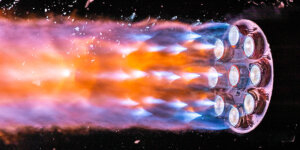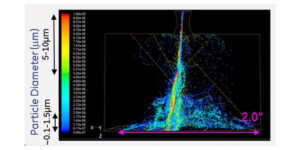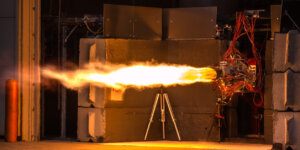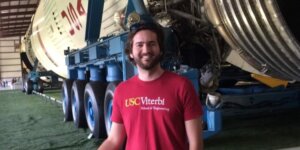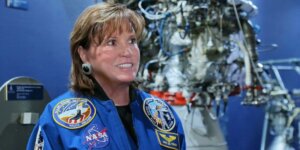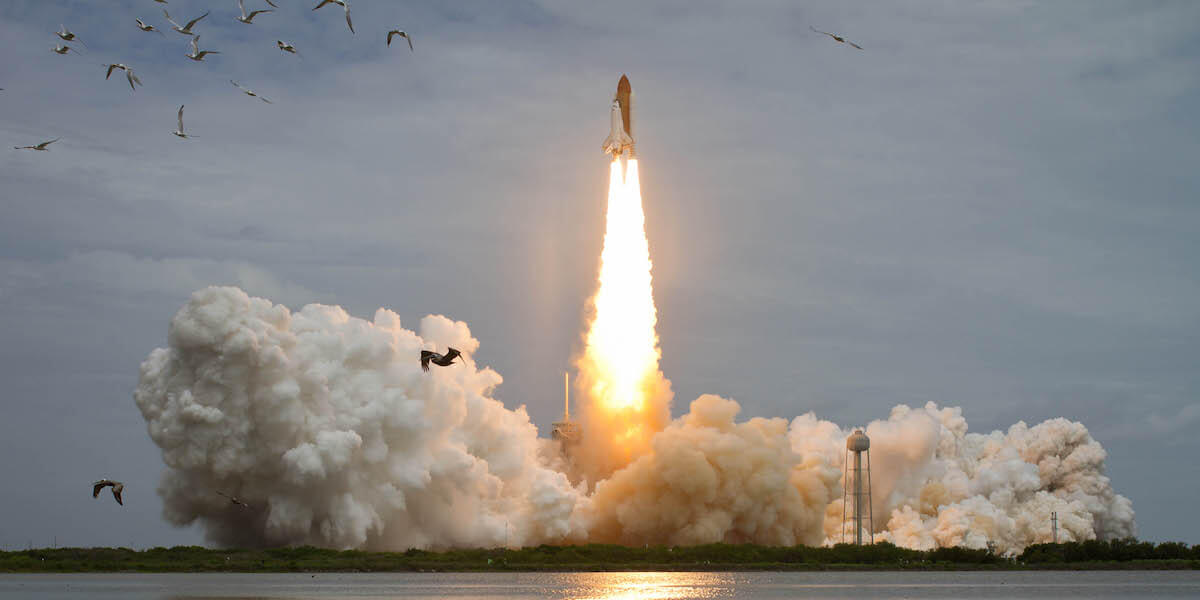
The final flight of shuttle Atlantis, launching July 8, 2011, from NASA’s Kennedy Space Center in Cape Canaveral, Florida. The engines’ hydrogen turbine flowmeter uses a new design by Bogdan Marcu introduced in 2007. Photo courtesy of NASA/Bill Ingalls
On July 20, 1969, from behind the Iron Curtain in communist Romania, ten-year-old Bogdan Marcu, Ph.D. ’96 aerospace engineering, watched Neil Armstrong, M.S. ’70, take the first step on the moon. That moment unleashed a space dream and a chain of events that included a gutsy escape plan, a revolution, a USC graduate application to the Department of Aerospace and Mechanical Engineering funded by selling cotton socks on the streets of Budapest, a miners’ revolt and saving the life of a total stranger who would forever seal his fate.
As a rocket scientist, Marcu has worked on some of the most prominent projects in space exploration. From Pratt and Whitney Rocketdyne, where he developed one last design for NASA’s Space Shuttle hydrogen flowmeter turbines, to SpaceX , where he led the design of the Merlin 1D turbine engines that power the Falcon 9 1.1 rocket currently used to launch satellites and the Dragon capsule that supplies the International Space Station (ISS).
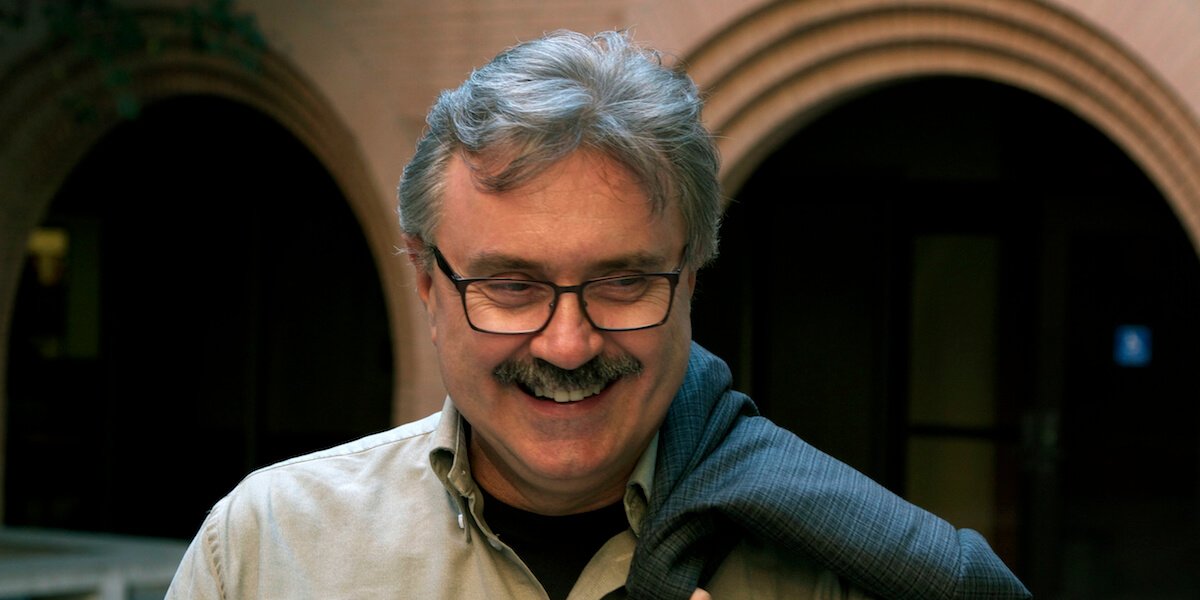
Bogdan Marcu Photo/Daniel Druhora
At SpaceX, Marcu also designed the first development version of the Raptor’s engine turbines to be used in future missions to Mars. In 2016, he returned to Rocketdyne – now part of the Aerojet Corporation – and is currently working on the development of AR -1 engines that will eliminate the American Atlas V’s rocket dependence on the Russian RD -180 engines.
Produced by USC Viterbi, Escape Velocity explores the intersection of engineering and everyday life – the extraordinary with the mundane and often the mundane with the impossible. From the premise of Engineering +, the idea that engineering is one of the few disciplines that “escapes” its confines and crosses into every area of our modern lives. Our goal is to shed light on that “escape”. Are computers changing human character? Can we download our dreams? Can people really live in space? Can a computer write Shakespeare? These and a multitude of other questions – entertaining, strange, topical and complex – are just a few of the topics the podcast touches upon.
Published on June 15th, 2016
Last updated on November 6th, 2017




